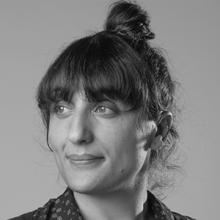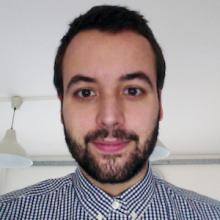Maker culture is rethinking the way kids and adults learn STEAM (science, technology, engineering, arts and math). Most nations feel the need for this new educational model, few companies are selling it, a large community is believing in it, but only few people are really designing it. Its approaches are applied worldwide by education innovators that inflect verbs such as learning by doing, learning by making, learning by fabricating, learning by coding and so on. In this realm, didactic resources transform into electronic kits, digital fabrication machines become the new blackboards, hardware boards are the new pencils.
From interaction design to fablabs and open source cultures, this session explores how and why another education is arising and why it is a good idea to combine design, technology and tinkering for innovating teaching and learning processes.
The masterclass introduces four cross-linked perspectives on the topic of the impact of the maker culture on education and the impact of a kind of education that is integrating maker principles, design, tinkering, technology, interdisciplinarity and technological innovation. The format will be a mix of presentations and discussions.
Detailed program of the masterclass
Researchers and creative practitioners focusing on maker practices are becoming increasingly sensitive to the effectiveness of the workshop format in collaborative practices, since most of the learning is not the result of instruction but rather of unhampered participation in meaningful settings. The claim “learn to teach, teach to learn” shows a fundamental part of the agenda of educators, artists, scientists and makers dealing with innovation and creativity since the production of new ideas, formats and items requires practitioners to get involved in a never-ending learning and feedback process within an environment that provides continuous validation. Using makerspaces in science museums as a case study, we will draft an arising scenario in which a new open educational system comes as a byproduct of a bottom-up prototype-to-product development process of lean startup, based on informal learning, maker culture, STEAM and critical making. And vice versa.

Prototyping interactions in the open making ecosystem (Serena Cangiano)
Practices related to open source hardware, open design and digital fabrication are having an impact on emerging design processes, which prospective designers should definitely be aware of. Those processes require the remix, the reshape and the subversion of classic design educational models: from the interaction design education to fablabs and makerspaces, the talk presents concepts such as sketching in hardware, design through computation and open documentation as key ingredients for learning how to design and prototype interactions in the current open making ecosystem.

From idea to prototype in 30 days (Marc Laperrouza)
In the framework of a semester project, teams of students from EPFL (engineering, computer science, etc.), ecal (industrial and interaction design) and UNIL (business and information systems) develop a connected device from scratch and manufacture them in small batches between Lausanne, Hong Kong and Shenzhen. We reflect on how the maker culture has spread across the globe and how academic institutions can build on a shared ethos of open source hardware by integrating fast and real prototyping activities in their curriculum.
Scenarios for a future education (Matteo Loglio)
New meanings in design and accessible technologies are laying the foundations for radical new scenarios in education. This talk is a reflection on the impact of some of these trends, particularly open knowledge, hardware products and peer-to-peer technologies, together with examples of commercial companies and startups that are adopting new cultural meanings to impact their users and finally the market.
See all pictures from the masterclass.







